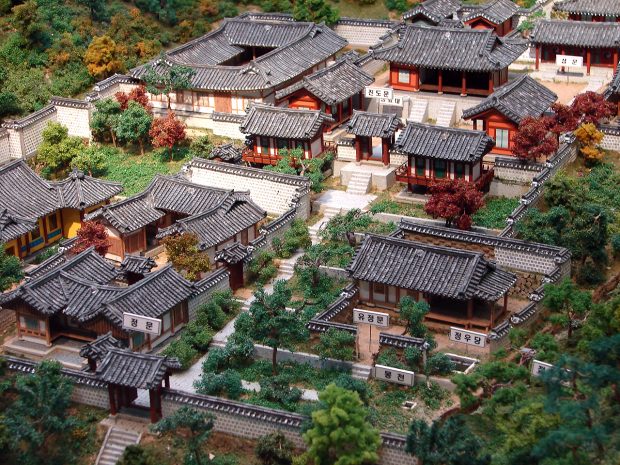‘Seowon of Korea’ designated UNESCO World Heritage Site

Dosan Seowon – Confucian Academy, was established in 1574 in Andong, South Korea, in memory of Confucian scholar Yi Hwang by some of his disciples and other Confucian authorities and serves two purposes: education and commemoration. Commemorative ceremonies have been and are still held twice a year and was featured on the reverse of the South Korean 1,000 won bill from 1975 until 2007.
A selection of nine South Korean Neo-Confucian academies that promoted learning, veneration of scholars and interaction with the environment, have been added to the UNESCO World Heritage List. “This site, located in central and southern parts of the Republic of Korea, comprises nine seowon, representing a type of Neo-Confucian academy of the Joseon dynasty (15th – 19th centuries,” the UN World Heritage Committee said as it made the announcement in Baku where it has been holding its meeting.
“Learning, veneration of scholars and interaction with the environment were the essential functions of the seowons, expressed in their design. Situated near mountains and water sources, they favored the appreciation of nature and cultivation of mind and body.” The pavilion-style buildings were intended to facilitate connections to the landscape. The seowons illustrate an historical process in which Neo-Confucianism from China was adapted to Korean conditions, the committee said in the Azeri capital where it is holding its 43rd meeting.
The nine academies are Sosu Seowon in Yeongju, North Gyeongsang Province; Namgye Seowon in Hamyang, South Gyeongsang Province; Oksan Seowon in Gyeongju, North Gyeongsang Province; Dosan and Byeongsan Seowon in Andong, North Gyeongsang Province; Dodong Seowon in Daegu; Pilam Seowon in Jangseong, South Jeolla Province; Museong Seowon in Jeongeup, North Jeolla Province; and Donam Seowon in Nonsan, South Chungcheong Province. Seowon are private learning institutions founded by local intellectuals that combined the functions of a Confucian shrine and a preparatory school. They served mainly intellectuals who are in conformity with the values of the ethics and orientated them by using the representative of the region. Most seowon were closed by an edict of the regent Daewon-gun in the turbulent final years of the 19th century. However, they were later designated as cultural properties and thus they were well preserved.
South Korean sites on the World Heritage List:
Haeinsa Temple Janggyeong Panjeon, the Depositories for the Tripitaka Koreana Woodblocks
Jongmyo Shrine
Seokguram Grotto and Bulguksa Temple
Changdeokgung Palace Complex
Hwaseong Fortress
Gochang, Hwasun and Ganghwa Dolmen Sites
Gyeongju Historic Areas
Jeju Volcanic Island and Lava Tubes
Royal Tombs of the Joseon Dynasty
Historic Villages of Korea: Hahoe and Yangdong
Namhansanseong
Baekje Historic Areas
Sansa, Buddhist Mountain Monasteries in Korea
Seowon, Korean Neo-Confucian Academies



















































